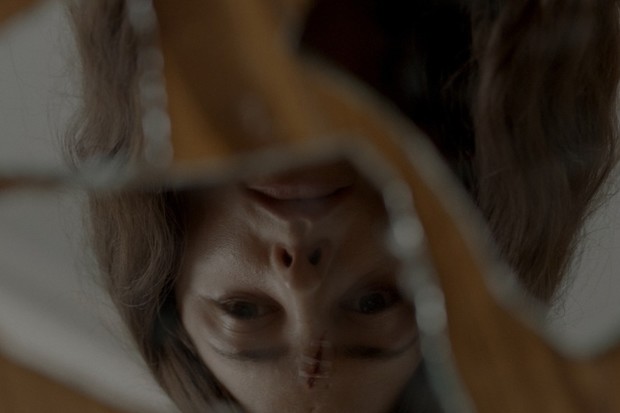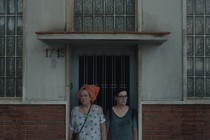SAN SEBASTIÁN 2014 Competition
Magical Girl: Three people under the influence
- In competition at San Sebastián following its premiere in Toronto, Carlos Vermut’s film is an invigorating tragicomedy involving overlapping stories that end in misfortune

Having been brought up on a diet of fanzines and comics, Carlos Vermut, the director of this film, claims that he was diagnosed with attention deficit as a child: he is unable to follow the narrative thread of a movie if there are too many stories going on within it and if it has a complex plot. This is why his only two films so far are divided into chapters, which, he admits, assists him in lending his narrative some kind of order. In Diamond Flash [+see also:
trailer
film profile], there were three plots: Family, Identity and Blood. In Magical Girl [+see also:
trailer
interview: Carlos Vermut
film profile], meanwhile, the three sections are part of the same plot, which follows a character and then links up with another, although there are various points of view involved and ellipses are plentiful. Just like the record by the 1960s Spanish group Los Brincos, the film’s three parts are named “Mundo, Demonio y Carne” (literally “World, Devil and Flesh”), constituents that were the three enemies of the soul (money, Satan and sex), according to the catechism that this professed atheist was forced to study at school. This was originally going to be the movie’s title, since it represents the three obstacles encountered by its protagonists: for the father of a terminally ill daughter (Luis Bermejo), the world is his enemy because he doesn’t have any money. In the case of the femme fatale (Bárbara Lennie), the devil is the unbalanced force lurking inside of her. And for the teacher being released from prison (José Sacristán), flesh was what brought him down in the first place.
We are thus presented with a film that appeals to the symbolic, the irrational and the intuitive; a film that places its trust in the viewer, letting him or her flesh out the suggestions, the silences and the gaps in the narrative. This even extends to the mysteries that the movie is riddled with, which, when inflated further by the audience’s imagination, can end up being more than terrifying. Because Vermut – a playful nickname given to this Madrilenian director – is interested above all in characters, rather than storylines. This is the reason why people’s faces take centre stage in his shots, clean and devoid of any unnecessary embellishments: he wants us to experience the full intensity of every gaze, conversation and expression. And he wants us to get to know his world, a world in which beauty can be found and appreciated even in the seediest of neighbourhood bars: and it is precisely in these surroundings that one of the movie’s tensest moments takes place.
The fact is that misfortune pervades Magical Girl, just as it can take hold of any one of us if we are pushed beyond the boundaries of our comfort zone, as happens to a father who is in way over his head as he gets involved in something too big for him, very much à la Fargo, a film whose black – and even pathetic – humour Vermut attempts to reclaim for his own movie. In Magical Girl, disaster is triggered by the most intense passion that you could ever imagine: the unbridled love that a father has for his daughter, which leads him to get caught up in a terrible dynamic that he has no idea how to handle. It is also passion (albeit a more unmentionable one that is buried deeper down) that causes a schoolteacher to lose control over his life and repeat his offence. We can glean this from the film: depending on what happens to us, we can even end up becoming potential murderers.
All of this – and much more besides – makes Magical Girl one of the most surprising, original and unsettling titles of the Spanish film season that is just getting under way. It is a tragicomedy in which the audience starts off laughing, but little by little, they feel as if their grins are somehow fizzling out, thus confirming that what we are witnessing is the beginning of a career that is as brilliant as it is atypical. This movie is evidence of a filmmaker with his own style and aesthetics who, after just two features, is already a benchmark for new Spanish cinema, which is breaking away from the most old-fashioned tenets of what came before it. Let’s hope that the San Sebastián Film Festival, where he is competing alongside highly renowned names, rewards him for his bravery and talent.
(Translated from Spanish)
Did you enjoy reading this article? Please subscribe to our newsletter to receive more stories like this directly in your inbox.
























